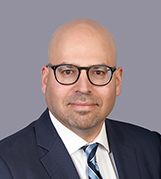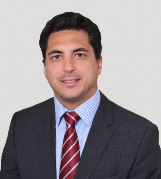Leveraging Cross-Border and Offshore Tools in Brazilian Insolvencies
The Chapter 11 filing of Brazilian airline GOL is the latest in a wave of cross-border financial distress and insolvencies rocking Brazilian companies. This poses both challenges and opportunities for international creditors: although Brazil’s insolvency landscape has been slow, a new bankruptcy law – combined with cross-border strategies in the U.S. and offshore – can give creditors leverage.
February 22, 2024
The January 2024 Chapter 11 filing of Brazilian airline GOL is just the latest example among many of the financial distress and insolvency rocking Brazilian companies that frequently cross borders. For international creditors and investors, the multijurisdictional nature of this distress presents challenges and opportunities.
Brazil’s insolvency landscape has historically created practical impediments for creditors, including the long completion times to the limited number of specialized courts. Recent developments in Brazil, though remaining nuanced, are providing new opportunities for investors. A multijurisdictional approach – especially in offshore jurisdictions where many Brazilian companies, including GOL through a Cayman Islands subsidiary, hold interests – offers international investors and creditors the ability to gain leverage toward a favorable recovery.
Strategies for Creditors to Boost Monetization
Since a new bankruptcy law was enacted, several tools became available in Brazil for international creditors looking to improve their leverage. These include creditor-driven recovery plans, involuntary bankruptcy or the means to pierce the corporate veil. The law also adopts the UNCITRAL Model Law on Cross-Border Insolvency, formalizing a mechanism (similar to Chapter 15 in the U.S.) for foreign insolvencies to be recognized in Brazil. This can smooth a path for pursuing assets or targets located in the country.
These tools can be enhanced by leveraging resources outside of Brazil, especially when there are nexuses to offshore jurisdictions, such as offshore bonds, assets belonging to the debtor company, or the domicile of key directors or officers. These resources can include:
- Bringing proceedings offshore. Brazilian companies often hold share interests through holding companies located in offshore jurisdictions, including the Cayman Islands and the British Virgin Islands. Creditors can obtain information in those places through judicial proceedings oftentimes without having to notify the debtor in question. Many jurisdictions also offer powerful provisional orders, such as injunctions and interim receivers, that have worldwide effect.
- Leveraging U.S. insolvency tools. Many Brazilian companies also have interests in the U.S., offering international creditors the opportunity to take advantage of the creditor-friendly U.S. insolvency and discovery regimes and increase their leverage. This includes the broad discovery powers available in U.S. insolvency proceedings, allowing creditors to pursue evidence such as bank records from U.S. clearing banks.
- Conducting a worldwide information gathering and targeting campaign. Identifying the worldwide structures and assets of the debtor company or other relevant targets can not only provide creditors with a clearer picture of what to target but can also be relevant for claims against third parties for damages. Potential targets can include enforcing against overseas receivables and IP.
As investors face sprawling and slow-moving insolvencies of Brazilian companies, new tools are available to help them improve their positions. In addition, recent developments in Brazilian legislation are having an impact. When combined with an aggressive multijurisdictional strategy, creditors can build the leverage needed to reach a favorable resolution and recovery.
About Kobre & Kim
Kobre & Kim is a global law firm focusing on cross-border disputes and investigations, often involving fraud and misconduct. Our capabilities include:
- We help clients with interests in Brazil through our team in São Paulo that routinely acts in complex, cross-border insolvencies and asset recovery campaigns.
- Our team of offshore-based attorneys and former government prosecutors has deep experience tracing, freezing and recovering misappropriated assets hidden in cross-border and offshore structures.
- Our deep experience coordinating claim enforcement and monetization strategies across jurisdictions, often involving assets and adversaries in Brazil and other Latin American countries, with enforcement lawyers across key offshore financial centers, South America, Asia, EMEA and the U.S.





